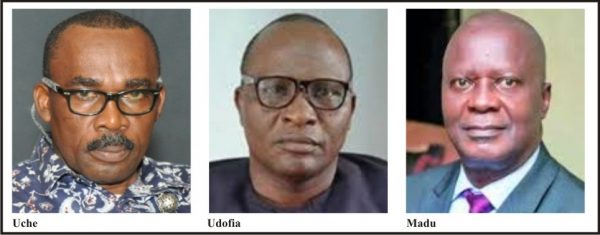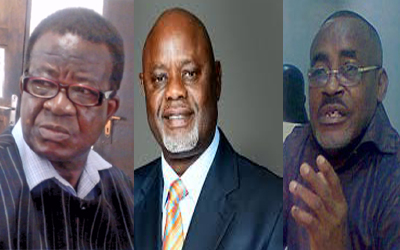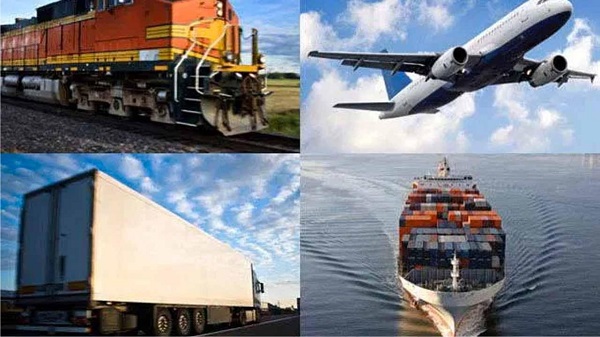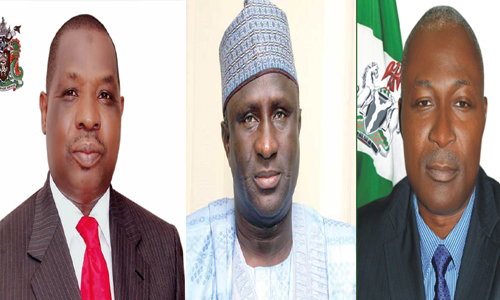PERISCOPE
The Wharf Landing Fees Conundrum
Since Lagos State Government was allowed to begin the collection of wharf landing fees in 2009, it was only a matter of time before other states demand for the same privilege. As the home to Nigeria’s biggest and busiest ports, the introduction of wharf landing fee in Lagos state has seen its internally generated revenue (IGR) soar since the inception of the wharf landing charges in the state.
The Cross Rivers State Government is planning to begin collection of wharf landing fees inside the Calabar Port but this has not only generated controversy among stakeholders, it has also led to questions about the legal backing for the fee collection.
The Managing Director of the Nigerian Ports Authority (NPA) Ms. Hadiza Bala- Usman, recently questioned the legality behind the wharf landing collection in Lagos as there was no provision in the NPA Act of 1958 or as amended or is there a National Assembly legislation backing the wharf landing fees.
The wharf landing fees has been utterly criticized by the Manufacturers Association of Nigeria (MAN) as they argue that the fee leads to rising cost of doing business in Nigeria, and also directly works against the much desired foreign investment inflow into the country.
Meanwhile, on the introduction of the wharf landing fees on 16th March, 2009 with the successful passage of the bill into law now called, Wharf Landing Fees Law 2009, the Lagos State Government emphasized that the fee was necessary to shore up the revenue profile of the host local governments to the ports. The Lagos State Government further argued that the revenue is needed to ameliorate the harmful consequences of trucking activities in the port areas.
Consequently, every importer was expected to pay N1,000 on 40ft container, N500 on every 20ft container and N300 on every vehicle imported through the ports.
The Lagos State Government had then said it spent over N15billion to repair most of the 117 Federal roads in the state, saying the money was yet to be paid back to it.
The then Governor Babatunde Fashola, who spoke while addressing over 3,000 maritime operators at a stakeholders’ forum, said the wharf landing fees was introduced to repair the damage done by the heavy trucks to 3,028 state and 6,415 local government roads in the state.
He explained that the wharf landing fees had been harmonized by the state to facilitate trade and eliminate arbitrary charges by each of the local government authorities in the state.
As at the time of this report it was not established whether the fees’ collection authority has changed the stated fees or was the amount collected over the years as wharf landing fees established to ascertain whether the fees are justified in righting the alleged wrongs in the state, economically.
Attempts at speaking with the current Chairman of the Lagos State Government Wharf Landing Fees Collecting Authority, Mr. Joe Igbokwe failed. He was snobbish and demonstrated, by every inch ignorance of the workings of the port system and transport at large
However, the Cross River State Government has not made its wharf landing fees charges public, except a presentation to the management of NPA, but the idea seems a hard sell before the stakeholders, who have equally complained of not being carried along. So, the port concessionaires in Calabar have shown their detests for the new charges. While the Integrated Logistics Services (INTELs), Shoreline Logistics Nigeria Limited are keeping a loud silence over this, Ecomarine Terminals has emphatically noted that it is anti-business.
Speaking to MMS Plus on the wharf landing fees, the Chief Operating Officer of Ecomarine Terminals, Mr. Dayo Balogun lamented that the Lagos State Government shouldn’t have been allowed to begin the collection in the first place.
He said, “stakeholders should have rallied support to make it known that the fee would not augur well for businesses in the country when the Lagos State Government introduced the wharf landing fees in 2009. Since Lagos State Government introduced it and the Federal Government didn’t raise eye-brows, other state governments have decided to take a cue from Lagos especially as things are getting
tough in terms of revenue generation.
“The major threat of the wharf landing fee is that it easily leads to the problem of multiple taxation and duplicity of charges. However there is a need to harmonize the various levies that are chargeable across the various sectors. It is very important that these levies are harmonized so that where there are cases of duplication of charges, it could be easily identified,” Dayo added.
The mode of collection of the levy in Lagos has also been frowned at by many stakeholders because the Lagos State Wharf Landing Fees Collecting Authority adopts the style of the motor parks boys in the collection of the fees. They stop trucks exiting the Lagos Port Complex (LPC) and the Tin-Can Island Port Complex (TCIPC), both in Apapa, on their respective access roads demanding for receipts and issuing receipts. However, the Cross River State Government plans to operate inside the Calabar port.
According to the Cross Rivers State Government, the introduction of wharf landing fees is part of measures being put in place by the Government to shore up her revenue base in the face of dwindling allocations. However, sources say that the scope of the collection in Cross Rivers may be more than that of Lagos as the Cross Rivers State Government hopes to tax small crafts, tug boats and cargoes according to volume and value thereby necessitating its operatives’ presence inside the port.
Speaking on the issue, a maritime expert, Mr. Galtima Liman told our correspondent that there has to be a balancing act between the Cross Rivers State Government’s need for funding and ensuring that the competitiveness of the port is not hampered.
According to Galtima, an importer or exporter may decide to route his cargo through other ports if he discovers that the additional burden of the fee is too much and this would not augur well for the Calabar port.
“There are two sides of the coin to the introduction of this fee in Calabar; how does this affect the port competitiveness vis-à-vis neighbouring ports whilst generating revenue for the state. The structure in place at ports in Lome and Cotonou are friendlier than the ports in Nigeria and this is why most of our cargo is being diverted especially when we always come up with one charge or the other.
“On the other hand, the local communities argument is that the shipping activities that transit through their state do affect the roads, therefore the need to have a compensation scheme from shipping activities within their environment. This was the same argument Lagos State Government made but there is a need to strike a fine balance,” Galtima posited.
Meanwhile, the Chairman of the Board of Trustees of the National Association of Government Approved Freight Forwarders (NAGAFF) Chief Chidiebere Enelamah stressed that the volume of trade in Calabar was too low to be compared to Lagos and the introduction of wharf landing fees could be counter-productive.
“The traffic in Calabar can’t be compared to the work load in Kirikiri Lighter Terminal or PTML, for instance. So the introduction of such fees could scare aware businessmen. I understand that the MD of NPA recently visited that area and I believe that if they should remove sentiments, business activities will begin to work out there in Calabar”
However, Enelamah said that he could be swayed to endorse the wharf landing fees if it would guarantee the development of port infrastructure in Calabar because there was too much concentration of cargoes in the west.
“This high rate of concentration of business activities here is because of certain political consideration, that axis is being denied business and when you deny that very axis business that means you are creating a lopsided patronage. Look at the traffic gridlock as we have it here in Lagos. So, when you decentralize that, there will be even development.”
“If the multimodal transportation system works; rail, road and sea, etc., become very effective, if you have any guarantee that the fund to be generated from the wharf landing fees would not be embezzled but put back into the maintenance of the road, then it is a welcome development,” he said.
By Kenneth Jukpor






